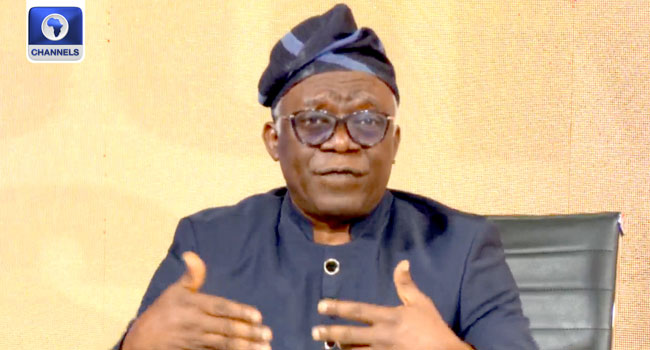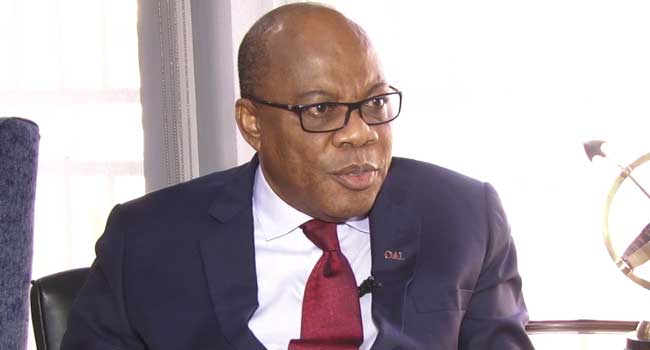The Economic and Financial Crimes Commission (EFCC) has warned against calls for the scrapping of the anti-graft agency
About 16 governors are in court challenging the legality of the establishment of the EFCC.
But the EFCC’s Director of Public Affairs Wilson Uwujaren has defended the agency, saying without the anti-graft commission, Nigeria will crumble under corruption.
“We are really shocked by what is happening,” Uwujaren said on Monday’s edition of Channels Television’s breakfast show The Morning Brief.
“Nigerians should see through this shenanigan and oppose it because I don’t see how this country can survive without the EFCC with the kind of corruption problem that we have. Nigeria cannot do without the EFCC.”
‘Feeling The Heat’

Uwujaren claimed those behind the challenge are “feeling the heat” of EFCC’s work and do not want to be held accountable.
“I am worried that, with the kind of problem we have with corruption in this country, some people would go to court to challenge the legality of EFCC,” he said.
“Those who are doing this, I am not sure that for citizens in their states, the EFCC is their greatest problem. I doubt if that is the case. What you see playing out is simply people who are feeling the heat of the work of the EFCC and they want to derail what is going on within the EFCC.
“They see the EFCC as a threat and purely that is what is playing out. I think Nigerians can see through the gimmick of those who are behind the challenge of the legality of the commission.”
According to him, the establishment of the EFCC is backed by the country’s laws and as such challenging its legality is purely to derail the fight against corruption.
“So, people who are concerned about transparency and accountability will wish the EFCC to be killed. Let me use the word killed because that is the agenda.
“They simply want to derail the fight against corruption because they don’t want accountability in their domains,” Uwujaren said.
EFCC Has Come to Stay

Calls for the scrapping of the EFCC have dominated headlines in recent weeks. Sixteen governors had filed a suit at the Supreme Court challenging the legality of the establishment of the agency.
The Kogi State Government instituted the suit and is joined by Ondo, Edo, Oyo, Ogun, Nassarawa, Kebbi, Katsina, Sokoto, Jigawa, Enugu, Benue, Anambra, Plateau, Cross-River, and Niger.
The apex court fixed Wednesday, October 22nd for the hearing.
But human rights lawyer Femi Falana has faulted the move and believes measures to ensure the commission is not under the control of the government should be mapped out.
“For me, the ICPC and the EFCC like the Code of Conduct Tribunal have come to stay. What we should be demanding are measures to make these institutions autonomous, not under the control of any government,” Falana said on Channels Television’s Politics Today.
“And the Supreme Court has maintained rather repeatedly concerning the EFCC and EFCC; that these are common, they shouldn’t be under the control of the Federal Government.
“They are common agencies to fight economic crimes in our country, to fight financial crimes in our country, to fight corruption in our country.”
‘Unconstitutionally Established’

Earlier, a Senior Advocate of Nigeria (SAN) Olisa Agbakoba had written to the National Assembly and argued that the EFCC was “unconstitutionally established”.
“I will go further to say that I very strongly believe the EFCC is unconstitutionally established. The powers under which it was established go beyond the powers of the National Assembly. The EFCC is an unlawful organization,” the renowned lawyer wrote in separate letters to the Senate and the House of Representatives.
“I am very delighted to note that many states have finally taken it upon themselves to challenge the constitutionality of the EFCC. This will put to rest the question relating to the validity of the EFCC.”



